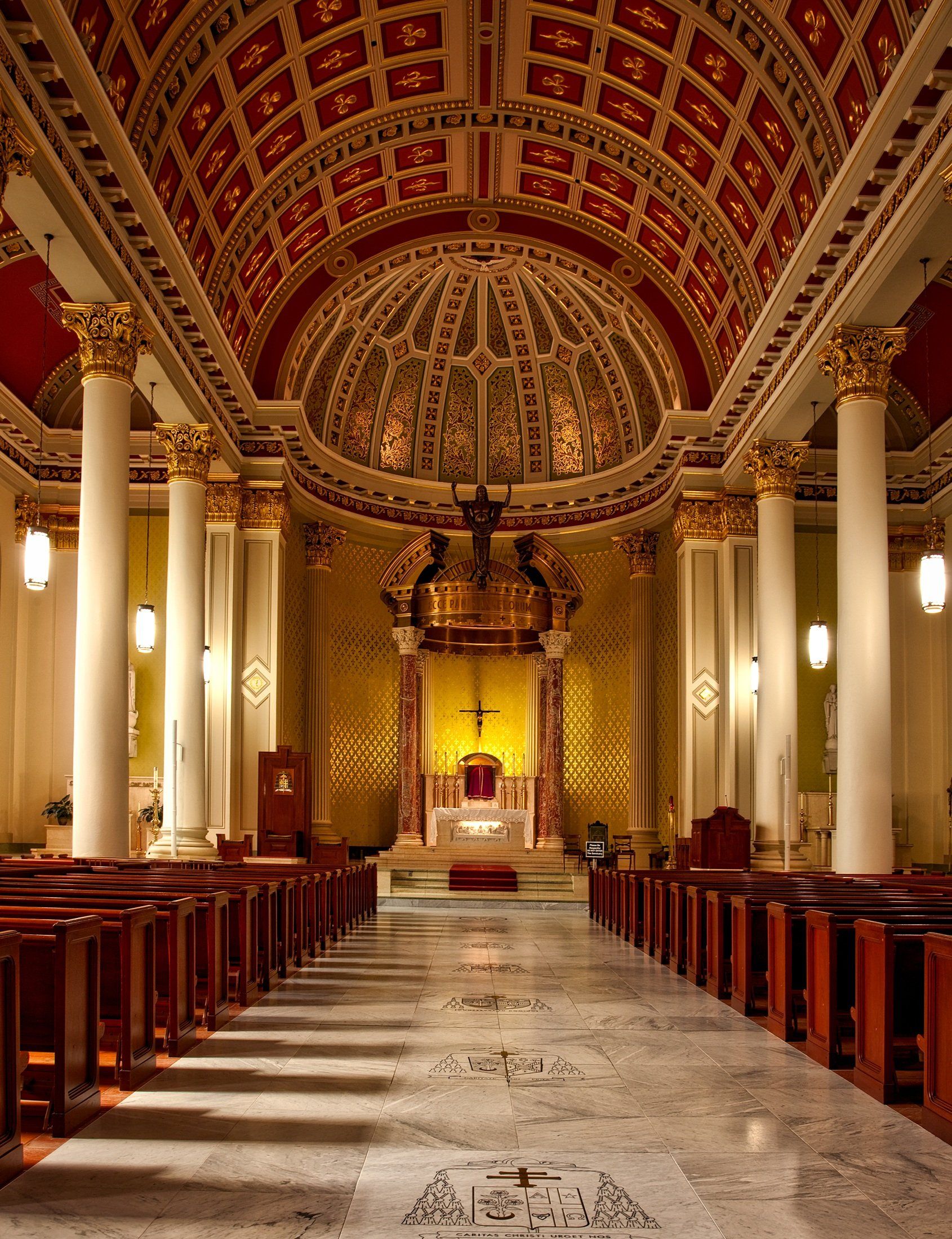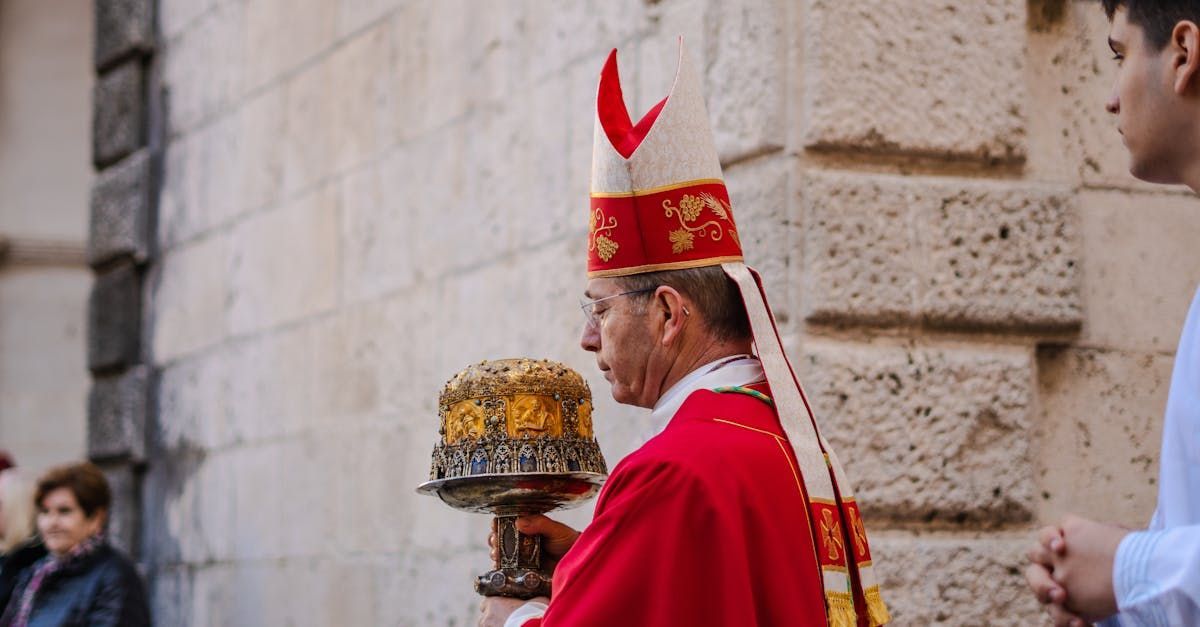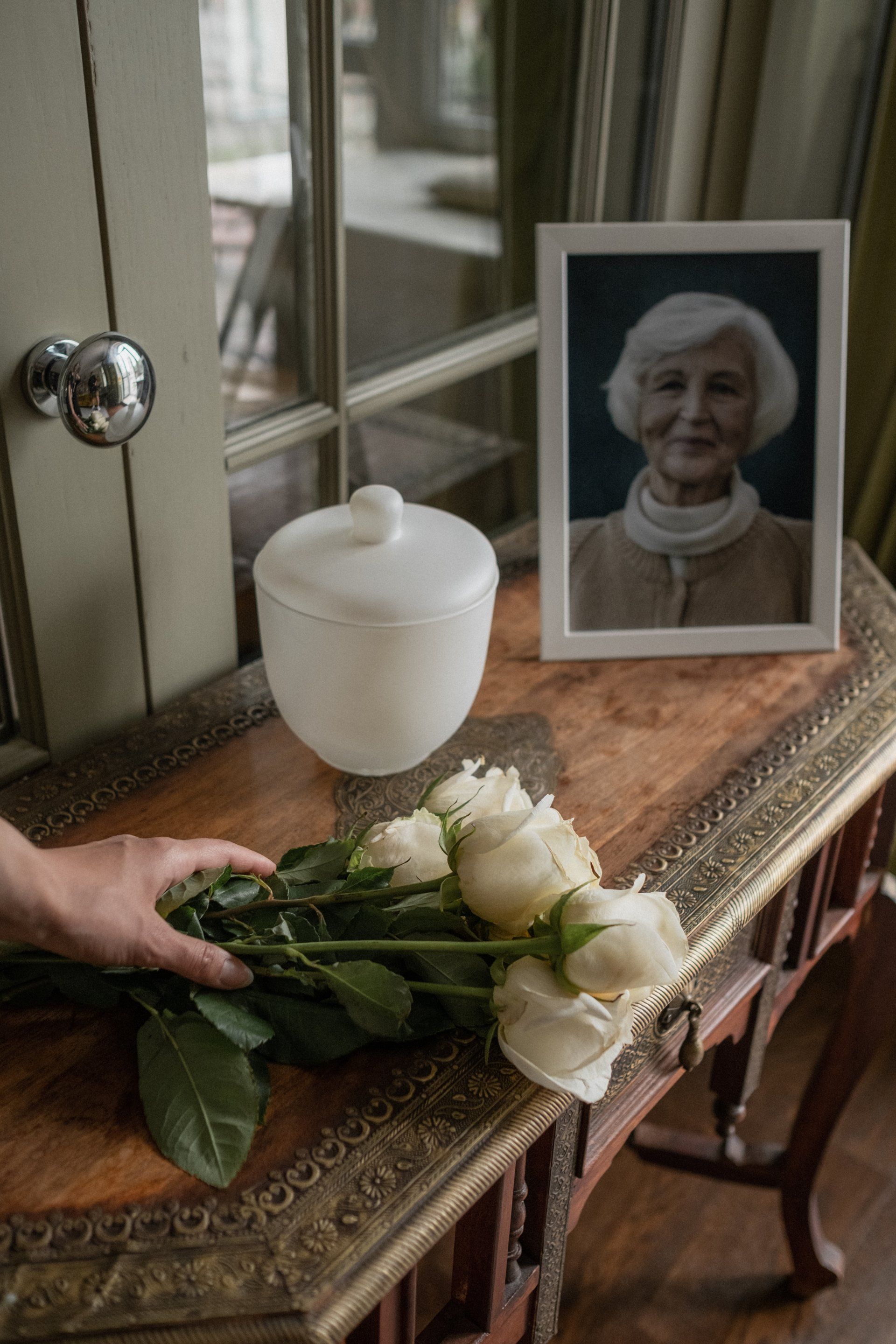Omelia por el XIXo Domingo Ordinario
Como sacerdote, no es raro que personas acudan a mí cuando están en crisis o necesitan consejo. Dicen cosas como: "Padre, si tuviera más confianza en Dios, no estaría tan preocupado por esto". O, "Padre, si orara más, mis hijos serían más obedientes y también irían a la iglesia". Una vez en un hospital, un amigo mio que visitaba a su madre moribunda dijo: "Padre, esto es un castigo por ser un mal hijo". Le respondí: "Thomas, esto no es un castigo. Tu madre tiene ciento tres años. Esto simplemente se llama muerte". Luego, me miró, "Padre, ¿estás seguro?" Dije sarcásticamente: "No al cien por cien. Thomas, si fueras un mejor hijo, ella podría haber vivido hasta los ciento veinticinco años".
Podemos tender en nuestras vidas a hacer las cosas simples complicadas y las cosas complicadas demasiado simples. Por ejemplo, daré el ejemplo de algo que podríamos llamar complicado, es decir, la convivencia del sufrimiento con un Dios bueno. Es un gran misterio para nosotros ordenar a lo largo de nuestra vida cómo podemos ser fieles a un Dios bueno en esta vida, pero él no quita todo el mal y el sufrimiento de nuestra experiencia humana. Como esto requiere disciplina, contemplación, oración y una vida sacramental robusta, queremos simplificarlo. Entonces decimos: "Debo estar sufriendo porque no estoy orando lo suficientemente bien". O, "Mis hijos son desobedientes porque no prestan atención y rezan el rosario conmigo cuando yo rezo el rosario". Esta mentalidad espera que si hacemos el bien en esta vida, seremos recompensados en esta vida. Si hacemos el mal, debemos esperar cosas malas. Este principio religioso se llama karma y es anticristiano. Es la creencia de que las buenas intenciones y acciones influirán en el bien personal que uno puede obtener en el futuro.
La teología cristiana es mucho más complicada y, lamento decirlo, menos satisfactoria a primera vista. Nuestro buen Dios creó el mundo bueno. Adán y Eva a través del primer pecado trajeron la caída de la creación e introdujeron el pecado original. El mundo ya no es un entorno armonioso y perfecto. Es débil y vulnerable a la corrupción, las enfermedades, la falta de recursos y los desastres. Sin embargo, la bondad y la gloria de Dios no se ven afectadas por la corrupción de su creación. Él sigue siendo bueno. Y en medio del sufrimiento y la infidelidad del hombre, él sigue interviniendo personalmente para ofrecernos la salvación en el reino de los cielos. En la medida en que somos milagrosamente librados de alguna dificultad, enfermedad o sufrimiento, sólo sirve para que Dios siga ofreciéndonos la salvación a cada uno de nosotros. Esto nos da un gran misterio en el que adentrarnos. Me hace pensar a diario: "Si Dios no está quitando esta dificultad de mi vida, es para que pueda usarla para mi santificación y salvación". Toma cada día de nuestra vida adentrarnos más en ese encuentro personal con el plan de Dios y darnos cuenta de que, como decimos en el Salve Santa Reina, caminamos en esta vida a través de un valle de lágrimas. Como dije antes, no es muy satisfactorio a primera vista.
Pero consideremos un ejemplo de algo simple que hacemos complicado. Nuestra vida de oración puede volverse tan complicada y prolija que ya no es efectiva. Había una mujer en Carolina del Sur que iba a la iglesia de su parroquia todos los días de la semana a las seis de la mañana. Allí, ella comenzaría sus devociones diarias. Ella asistía a Misa a las ocho de la mañana y luego se quedaba para terminar sus devociones. Después de observarla con su bolso de mano lleno de folletos y estampas durante muchos años, y susurrando audiblemente sus oraciones todo el tiempo, el párroco finalmente le preguntó un día cuando salía de la iglesia a la una de la tarde: "Señora , ¿en qué ocupa su tiempo durante la oración?" Ella respondió: "Padre, empiezo con la novena a San Judas, y luego tengo mi Coronilla a San Miguel. Cuando termino con eso, rezo los Misterios Gozosos del Rosario antes de recitar la novena a San Miguel. Filomena, entonces tengo..." y repasó una letanía de oraciones que rezaba. Finalmente, terminada la explicación de cada paso de su rutina, el sacerdote le preguntó: "Pero, hija mía, ¿cuándo en los últimos 8 años que te he visto hacer esto has dejado de hablar y le has dado la palabra a Dios?"
Es una historia graciosa (¡pero verdadera!) que me contó un amigo sacerdote. Ocurrió entre su párroco y una señora de su parroquia. Era un sacerdote nuevo y estaba bastante divertido por la sabiduría muy simple de este sacerdote mayor. La oración es simplemente diálogo con Dios, pero lo complicamos porque pensamos que la oración resolverá todas nuestras angustias y debilidades. Pero aquí es donde dejaré un pensamiento en el que te animo a reflexionar esta semana en tu oración: Dios desea que estemos ansiosos. Él desea que nos preocupemos. Él desea que nos preocupemos por el mundo que nos rodea.
Demasiadas veces nos aferramos a clichés, pero a mantras espirituales imprecisos. Tales como, "Si confías en Dios, no tendrás cuidado en el mundo". O, "Me pongo en las manos de Dios, y por lo tanto estoy seguro de la protección de todas las tentaciones". Bien, hay inmediatamente dos problemas con estas declaraciones. En primer lugar, Dios no ha prometido ninguna de estas dos cosas. En segundo lugar, estamos tentando nuestra propia fe y preparándonos para dudar de la bondad de Dios. Es imposible vivir sin preocupaciones, por eso cuando digo que Dios me quitará todas las preocupaciones y no lo hace, empiezo a dudar de que me haya puesto adecuadamente en sus manos. O, en el segundo ejemplo, cuando vienen las tentaciones, o dudo que Dios quiera lo que es bueno para mí o dudo si me he puesto adecuadamente en sus manos. En cualquier caso, hemos complicado demasiado la vida de oración.
Primero, debemos reconocer que la vida está llena de dificultades, enfermedades, tragedias y sufrimiento. Este es un mundo caído y corrupto. Sin embargo, dentro de este mundo caído, Dios nos ha dado un código moral y los medios para vivir a la altura de sus enseñanzas, principalmente a través de una vida sacramental y activa en la Iglesia. No debemos esperar que nuestra fidelidad al Señor supere toda dificultad y sufrimiento personal, pero inspira en nosotros la esperanza segura de nuestra eterna liberación del sufrimiento eterno. Por lo tanto, naturalmente nos preocuparemos por las cosas que nos tientan a seguir el camino de la infidelidad. También nos preocupamos cuando los que nos rodean no eligen fielmente la voluntad de Dios en su vida. Pero eso no es una acusación de nuestra propia fidelidad.
Tomemos la vida de Jesús por ejemplo. Jesús no tenía pecado, esto lo sabemos. Esto significa que en cada momento de su vida eligió lo que estaba de acuerdo con la voluntad del Padre. Sin embargo, esto no impidió que sus emociones lo conmovieran terriblemente. Lloró por la muerte de su amigo Lázaro. Cuando Marta y María siguieron acusándolo de no estar presente para salvar a Lázaro, se nos dice que Jesús estaba perturbado por ellas. Un día, cuando Cristo entró en el monte del templo, se enfureció con los cambistas y los echó con un látigo hecho de cuerdas. Antes de su pasión, estaba tan movido por la ansiedad que sudaba sangre. Durante su ministerio público, miró hacia afuera y vio a todos sus seguidores, y las Escrituras nos dicen que su corazón se conmovió. Todo esto era completamente humano. El Padre no le quitó estas experiencias a su Hijo porque le facilitarían el cumplimiento de la voluntad de su Padre. Dios tampoco elimina nuestras emociones y las formas en que somos movidos a la pena, la tristeza, la ira, la alegría y cosas por el estilo.
En lugar de quitarnos nuestras ansiedades y preocupaciones, el Señor hoy enseña a sus discípulos cómo ordenarlas correctamente. Primero, habla a todos sus seguidores y les dice: "No temas, rebañito mio". No teman porque el Padre les va a dar un reino. Cumple todo lo que te manda. Esto no hará tu vida más fácil, pero asegurará que no tengas que temer la eterna exclusión de su rey.
Luego se vuelve a sus discípulos, a los que ha designado para ministrar en su nombre. Él les dice: "Sed como siervos que esperan el regreso de su amo. Cuidad lo que le pertenece". En cierto modo, está diciendo, cuidad del rebaño pequeño para que no tenga nada que temer. Aquellos sirvientes que cuidan las pertenencias del amo serán recompensados cuando regrese. Y entonces interviene Pedro. No está seguro si Cristo está hablando de los discípulos o de los ancianos de Israel. Y el Señor aprovecha esta oportunidad para hablarle directamente. Lo llama el mayordomo fiel y prudente que está encargado de distribuir la ración de alimentos a su debido tiempo. Entonces, en definitiva, está creando una estructura expansiva de responsabilidad. El rebaño debe permanecer fiel al mandato de Dios. Los sirvientes deben cuidar del rebaño. Y el mayordomo es el que se asegura de que todos tengan lo necesario para llevar a cabo sus tareas.
El Papa León XIII escribió una hermosa encíclica sobre la jerarquía divina de la iglesia y su estructura de autoridad. Intentaré explicarlo con una imagen muy simple. En la Iglesia, el primer obispo entre todos los obispos es el Santo Padre. Él es el mayordomo de la gracia. Cristo, casado con su iglesia, está canalizando este flujo de gracia hacia su novia. El Santo Padre, en la medida en que es más o menos fiel a su oficio, tiene la mano sobre este grifo de gracia. Puede subir el flujo por completo o puede bajarlo. Pero ese flujo luego llega a los obispos, los sirvientes que están a cargo de llevar el rebaño del amo. Son la única autoridad en su diócesis. Sólo ellos tienen la tarea suprema de enseñar, gobernar y santificar. Por su grado de fidelidad a su oficio, pueden aumentar o disminuir el flujo de la gracia, pero solo hasta el punto en que se les permite fluir desde el Santo Padre. Debajo de los obispos están los párrocos de parroquias individuales. Una vez más, tienen una oficina con responsabilidades y deberes. Por la fidelidad del pastor, él puede abrir o cerrar el grifo.
¿Y qué pasa si todas estas personas son servidores fieles y todos estos grifos están al máximo? En la estructura de autoridad de la Iglesia, el siguiente grifo lo controla el cabeza de familia, por lo general el padre de familia. Es su responsabilidad asegurarse de que la fe se enseñe correctamente, que la familia adore junta el domingo y luego dirija a su familia en la fiesta. Él provee para su familia y les da un ejemplo de justicia y obediencia para que puedan seguir. Cuando es necesario, hace cumplir las reglas del hogar con diligencia y ternura paternal. Siendo un cabeza de familia fiel, abre ese grifo o lo cierra. Aparte, esta es la razón por la que necesitamos hombres cristianos fuertes, devotos y amorosos que guíen a nuestras familias. Si tenemos hombres que se muestran débiles al pasar poco tiempo con su familia, no ir a la iglesia los domingos, menospreciar a sus esposas o exhibirlas como trofeos, y ser infantes que creen que la familia y su esposa están para servirles, entonces por sus acciones su familia es privada de la vida de gracia y él está en peligro la salvación eterna de sí mismo y su familia.
Nuestras ansiedades y preocupaciones son respuestas naturales de atención a aquellas cosas que son importantes para nosotros. Mis preocupaciones y ansiedades deben ser abordadas. Y, como párroco, debo atender primero aquellas preocupaciones de la parroquia y las familias de Santa Cruz. Debido a mi vida sacerdotal, debo atender los cuidados de mi propia familia antes incluso de abordar las preocupaciones de mi familia biológica. Afortunadamente, tengo una familia que entiende esto. Los padres de familia deben atender las angustias reales de su cónyuge e hijos incluso antes que amigos y compañeros de trabajo. Y cuando digo prioridades reales, me refiero a aquellas preocupaciones y necesidades que afectan el logro de la vida eterna. Los jóvenes solteros deben preocuparse por su crecimiento en la santidad, la preparación para su vocación y la protección de su castidad. Todo lo demás es insignificante. No puedo controlar la situación política en Venezuela o Ucrania. Ni siquiera puedo cambiar las decisiones del presidente de los Estados Unidos. Pero puedo gastarme y consumirme en las responsabilidades que me tocan como mayordomo de la gracia de Dios.
Cuando buscamos deshacernos de toda ansiedad, ira, dolor y sufrimiento, buscamos volvernos menos humanos. En cambio, Dios nos da la gracia de usar sabiamente los movimientos de nuestras emociones en formas que nos devuelvan a él. De este modo, la vida se convierte en aventura, y cada uno de nosotros contribuye a la edificación de la sociedad: la sociedad de la Iglesia, pero también el reino de Dios.
Pastor's Ponderings












